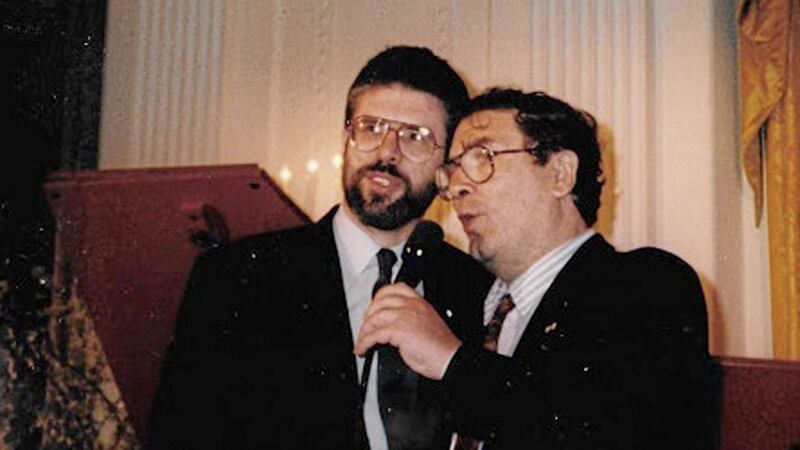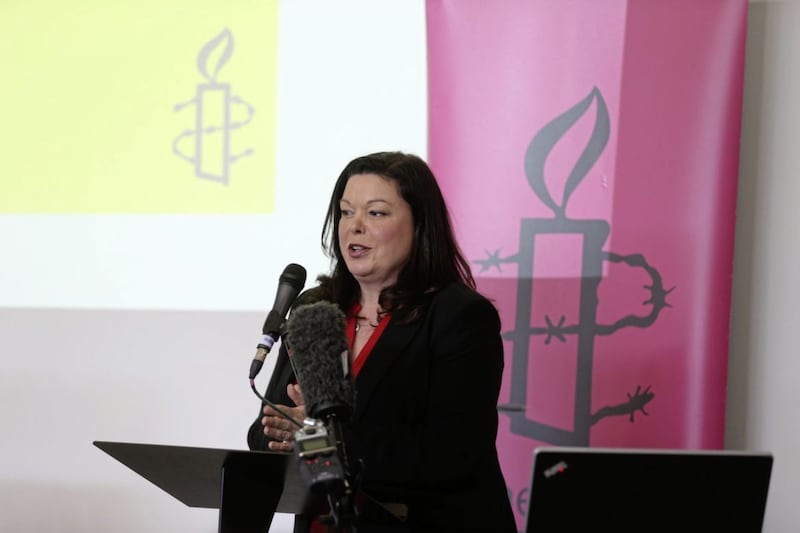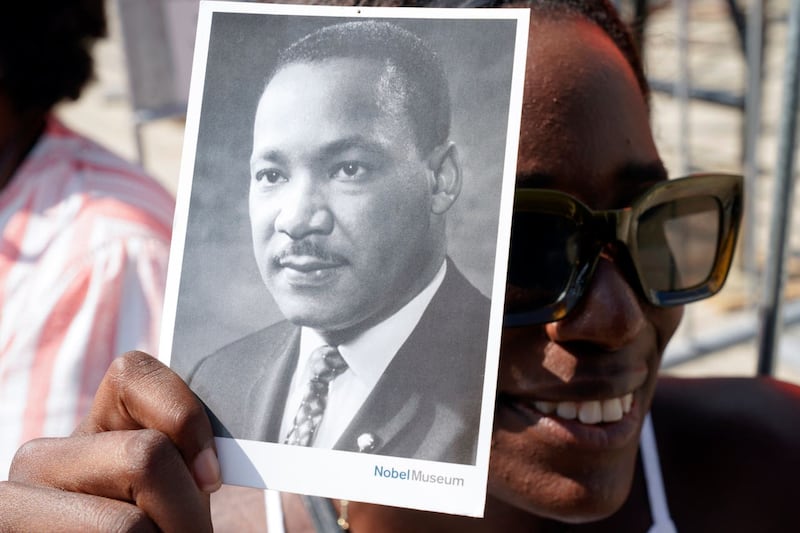JOHN Hume's ground-breaking engagement with Gerry Adams came about after SDLP deputy leader Séamus Mallon rejected the opportunity to meet the Sinn Féin president, according to the former West Belfast MP.
Writing in a blog about Mr Hume's passing, the former Sinn Féin leader outlined the process that led to the Hume-Adams talks in the mid-to-late 1980s.
The talks are widely credited with laying the foundations for the IRA's 1994 ceasefire and providing the framework for the Good Friday Agreement.
With Clonard-based Redemptorist priest Fr Alec Reid – referred to by Mr Adams as 'the Sagart' – acting as an intermediary, the two leaders first came face-to-face in September 1986, a meeting the then Sinn Féin leader describes as "friendly and constructive".
"While we had different political positions I found John very down to earth and easy to talk to," he recalled.
"I agreed to relay our discussions back to the IRA and he said he would try to establish whether the British government would be prepared to say the sort of things I had suggested would be helpful."
Fr Reid had initially contacted Séamus Mallon about a meeting, Mr Adams said, and the then SDLP deputy leader "indicated a willingness to consider".
After the priest told Mr Mallon he was thinking of contacting his party leader, the SDLP deputy asked for more time but "meetings that were arranged were then cancelled", according to Mr Adams.
"The British and Irish governments signed the Anglo-Irish Agreement in November '85 and in the Westminster by-elections in early 1986 Seamus Mallon won the Newry and Mourne seat," he said.
"In March Mr Mallon told the Sagart that he would not meet me."
He recalled that when the secretive dialogue with Mr Hume was made public in 1993 there was a "storm of protest, condemnation, and vitriol almost all aimed at John".
"The Irish and British political and media establishments were outraged by John’s impertinence in breaking the consensus position of refusing to speak to republicans," he wrote.
Sections of the Dublin-based media were "especially vitriolic toward John", the former Sinn Féin leader said.
"Their attacks were personal, political and often just abusive."
He said Mr Hume was "especially concerned at the impact on his family" but nevertheless "refused to be put off course".
"One of John’s great strengths was his dogged determination to see a thing through," the blog said.
"He was convinced, as I was, that we were both very serious and genuine about finding an alternative to armed actions."
Mr Adams said the pair's conversations were "never combative".
"John Hume made a historic contribution to Ireland and to the future of our island," the blog states.
"We are all the better for his leadership."
The former Louth TD notes that in hindsight he finds it difficult to believe it took a further 12 years after his first meeting with John Hume until the signing of the Good Friday Agreement.
On a lighter note, he also recalled the two leaders singing The Town I Love So Well - performed this week at Mr Hume's funeral - at the Sinn Féin president's first White House St Patrick’s Day event in 1995.
"Together we cleared the building," he said.
John Manley reflects on the legacy of John Hume:








